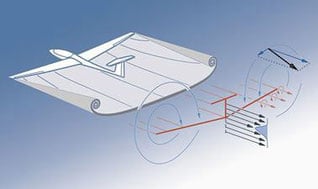What will I learn?
The online electric systems modeling course (in its free or paid mode), Principles of Modeling, Simulations, and Control for Electric Energy Systems, offers a comprehensive journey into the principles and practices that underpin modern energy solutions. This course equips you with the skills to model, simulate, and control complex electric energy systems. You will explore the essential principles of electric energy systems. You will learn about advanced modeling techniques, simulation methods, and control strategies crucial for developing and managing efficient energy solutions.
This course is ideal for professionals seeking to enhance their expertise and students aiming to deepen their understanding of electric energy systems. Undergraduate-level study of physics and mathematics (trigonometry and ordinary differential equations) is a must; a basic understanding of electric circuits and networks is helpful. The course has a rigorous and didactic approach, which combines clear and simple explanations with examples and activities that will help you consolidate your learning. The course also offers you additional resources, such as readings, videos and links of interest, that you can consult to expand your knowledge and deepen the topics that interest you the most.
This course is available on the edX platform, one of the world’s most prestigious online education platforms, founded by MIT and Harvard University. It can be taken completely free of charge or for a small fee.
Contents of the online electric systems modeling course, Principles of Modeling, Simulations, and Control for Electric Energy Systems
These are the contents of the course:
- Fundamentals of Modeling: Understand the basic principles of system modeling, focusing on electric energy systems. Learn how to create accurate models that reflect real-world dynamics.
- Simulation Techniques: Explore various simulation methods used in electric energy systems. Gain hands-on experience with software tools and techniques for effective system analysis.
- Control Strategies: Delve into advanced control strategies for electric energy systems. Learn how to design and implement control mechanisms to ensure system stability and efficiency.
- Case Studies and Applications: Analyze real-world case studies to see how theoretical concepts are applied in practical scenarios. Understand the challenges and solutions in modern energy systems.
- System Integration: Learn about the integration of different components within electric energy systems. Understand the importance of interoperability and coordination for optimal performance.
- Advanced Topics: Explore cutting-edge topics such as smart grids, renewable energy integration, and future trends in electric energy systems.
Paid or free electric systems modeling course
The course has two modalities: free and paid. The free electric systems modeling course, allows you to access all the content of the course, including the videos, the readings, the exercises and the discussion forums.
The paid modality also offers you the possibility of obtaining a verified certificate from edX, which accredits your participation and approval of the course. This certificate can be of great value for your curriculum vitae, as it demonstrates your interest and competence in electric systems modeling. In addition, by paying for the course, you will be contributing to Massachusetts Institute of Technology and edX being able to continue offering quality and accessible courses for everyone. If you want to know more about the cost and benefits of this modality, I invite you to visit the course page on edX, where you will find all the information you need.
In conclusion, the online electric systems modeling course (in its free or paid mode, Principles of Modeling, Simulations, and Control for Electric Energy Systems, is an indispensable resource for those looking to excel in the electric energy sector. It offers a blend of theoretical knowledge and practical skills that are crucial in today’s fast-paced technological landscape. Enroll now to stay ahead of the curve in electric energy system innovation!



























